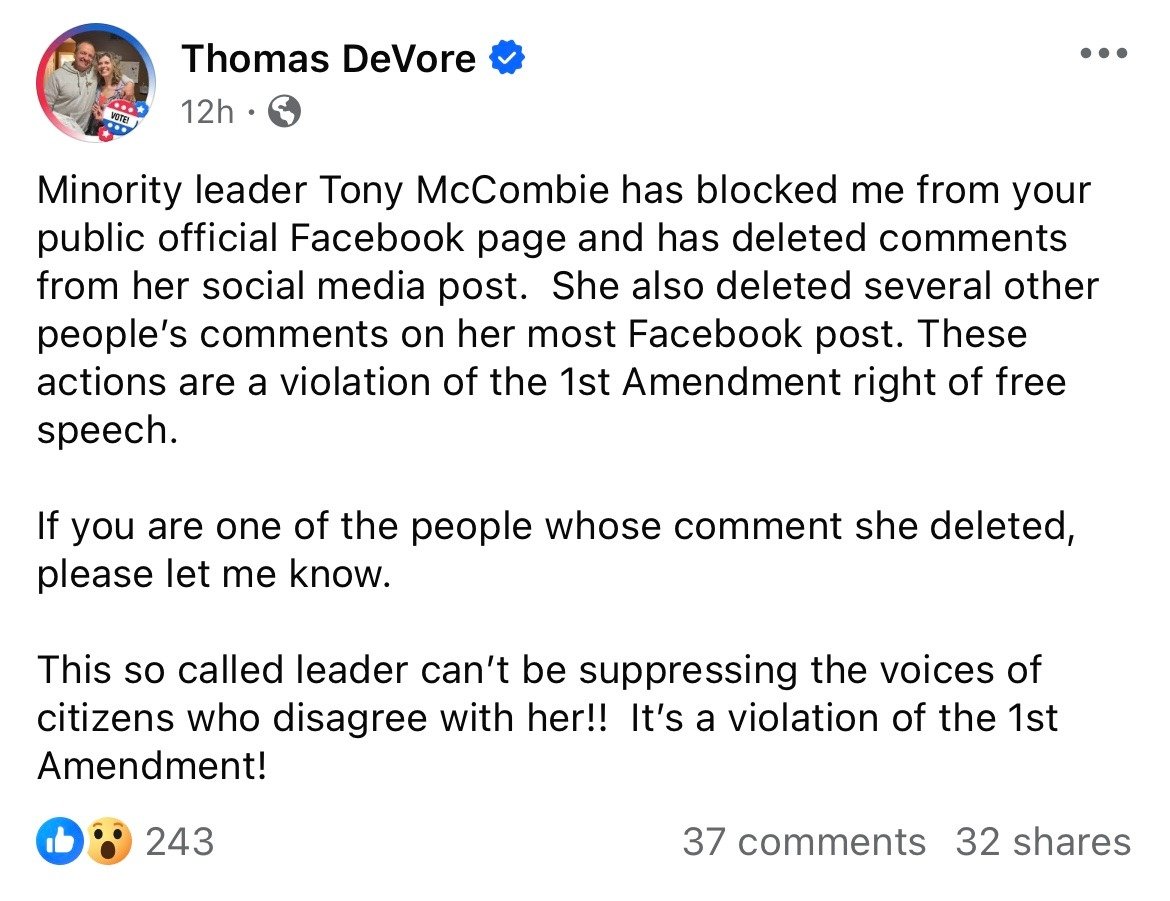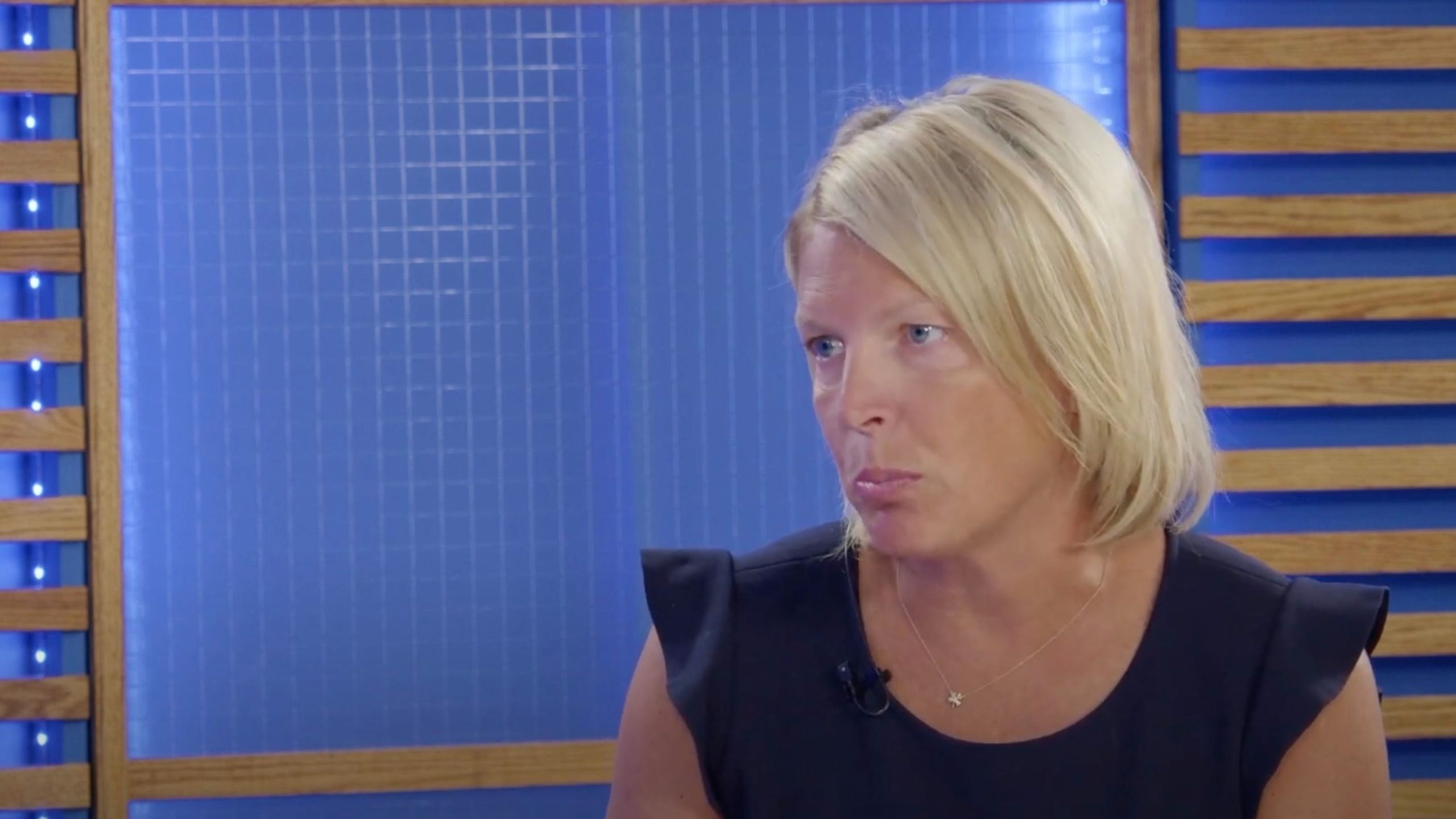Thomas DeVore, the former Republican candidate for Illinois Attorney General, has filed a federal lawsuit accusing Illinois House Minority Leader Tony McCombie of unconstitutional censorship on her government-related social media platform.
We obtained a copy of the complaint for you here.
The legal action, lodged in the Northern District of Illinois, centers on DeVore’s claim that McCombie banned him from her Facebook page after he criticized her political decisions.

According to the complaint, McCombie’s Facebook page, identified in the lawsuit as her “Primary Public Forum,” serves as a platform for discussing government matters with the public.
The lawsuit states that after DeVore expressed disapproval of McCombie’s political actions in response to her posts, he was completely barred from the page, and his comments were deleted. This removal allegedly silenced DeVore’s viewpoints from being seen by McCombie’s more than 17,000 followers.
McCombie’s office dismissed the lawsuit as politically motivated. “This is a politically motivated legal filing and we look forward to vigorously defending the complaint in court,” a spokesperson said.
DeVore is seeking both immediate and long-term legal remedies. His demands include a preliminary and permanent injunction to prevent McCombie from restricting speech on her Facebook page based on content. He also requests a declaratory judgment recognizing that McCombie’s actions violated his First Amendment rights, along with compensatory or nominal damages to be determined at trial, and coverage of his legal fees.
The lawsuit highlights that McCombie’s Primary Public Forum had been her sole Facebook platform for government communication from January 2017 until September 2024, when she launched a second page focused on her role as House Minority Leader. However, DeVore argues that the original page remains the primary space for public engagement on governmental issues.
DeVore, active on social media, referenced legal precedent in his defense. On January 10, he stated, “It does not matter what kind of social media account it is. It can even be a personal account. As such, when an elected official goes on social media and published content that is in regard to his or her public duties, the page becomes a public forum as a consequence of their actions. It’s no defense to try and argue it’s a non-public forum such as a personal page or political page as once the elected official crosses over, he or she cannot walk it backward.”













